Are you raising a Self-Directed Child? The majority of my work has been aimed at recognizing and disarming the dis-empowering effects of our childhood programming.
Since my own background was an extreme product of this type of scenario, it seemed an obvious and necessary thing for me to do. It’s natural for us to write about what we need to recognize and repair in our own psyches.
But, what if we, as parents, had been able and willing to work through most of the pitfalls and crippling self-judgments that metastasize from such a debilitating childhood experience?
Related: 5 Common Challenges Of Childhood
What if we had a child that had not yet been indoctrinated in the emotional behaviors that would hide our perceived inadequacies circulating beneath our interpersonal rapport creating a matrix of subconscious codependences that would superficially assert our effective child-rearing skills in the face of social scrutiny? What if our child was starting out with a virtual clean slate?
What elements would be necessary to be consecrated to their forming psyches that would enable them to remain free of our potentially compensatory codependences and operate effectively and independently in their blossoming world?
I have found seven elements that would have made a dramatic difference in my willingness and ability to face the world with all its potential goals and challenges. I think I can safely assume that many of them would have served as ample prevention for not only me but for a great many of you who have come from similar backgrounds.
Interpersonal Trust –
One of the most important factors that anyone needs to feel in order to allow themselves to be vulnerable to anyone else is a feeling of trust. This is something that is felt but not necessarily recognized by a child until circumstances and adult behaviors have shown them and hurt them enough to realize that there is a need for physical and emotional self-defense.
Related Video On Raising a Self-Directed Child:
Children are initially and innately trusting until they are shown differently. For most of us who are already adults, we have been through many painful awakenings and losses of innocence leading us to choose to believe that not all people can be trusted with our welfare. It’s not that people innately are malicious.
It’s just that after many experiences through childhood and beyond adults have generally already learned to protect ourselves from the behaviors of others that might leave them feeling hurt or denigrated in some way as an aftereffect of their interactions with them. It’s much like staying out of the way of moving traffic. If someone inadvertently “hits” us, they’re usually not aware and are usually filled with remorse at their transgression when they realize what they have caused.
Often times as adults we are so hyper-focused on our own survival and daily activities that we don’t notice children getting in our path of travel. Sometimes, we know that they’re there but don’t allow the time or space to address them. The key to preventing their accidentally being harmed is our becoming aware of their presence in the path of travel and making an effort to be in the moment with them while interacting and attentively listening.
Although children don’t consciously recognize it, they can feel our concern and consideration through our attention to them and know that we won’t punish or emotionally assault them simply for getting in the way. When feeling our attention to them in the moment they will begin to trust their interactions with us and feel confident that we have their safety and better interests at heart.
We put this into play by accepting how they perceive the world, encourage their own decisions about things that concern them and support their efforts even if those decisions and efforts might run contrary to our own feelings and personal experience…as they often do. If we don’t have interpersonal trust with our children, that means trust going both ways, nothing else will initiate their voluntary vulnerability to us. If they feel that they will get run over in our daily movement around them or punished or ignored when they express their own concerns, no matter how childish, they will never permit themselves to trust us. No trust = no positive rapport.
Validation –
How do you feel when someone doesn’t believe you, puts you down for something you feel is important and they don’t or ridicules you for the way you perceive your reality? Pretty bad, right? Are you likely to confide in them again after you’ve been made to feel that your thoughts and feelings are of no importance? Of course not! As adults, we sometimes give others the benefit of the doubt that they might have had hurtful incidents that occur in their lives or that they’re currently having challenging experiences that prevent them from seeing or feeling us clearly.
Related: How Your Childhood Shapes Your Adult Life
As adults, most of us have developed the ability to rationalize the details of our interpersonal experiences. Children don’t have that yet. They perceive our actions as being honest and upfront. They haven’t had enough life experience to know that there can be extenuating circumstances for other people’s perceptions and treatment of us. If children feel invalidated, they usually shut down when they’re around us, or, if they’re very resilient, will challenge our perceived disapproval or invalidation of them. To prevent this type of misunderstanding and unintentional invalidation of them it’s imperative that we, at the least, acknowledge that what they are feeling is valid and important.
Children are extremely perceptive. If they feel that we are patronizing them, they will perceive us as if we are making fun of them. We must be in earnest in our acknowledgment. They are dead serious. In our response we must also offer as clear of a reflection as we can for what they are confiding in us; first, to help them to develop their language skills in order to be able to convey their conclusions to others in the future and, second, to establish an honest one to one rapport with them so that they can feel that they can expect our acceptance and support for what they feel is important. No one feels good about being ignored or overlooked…least of all children.
Personal Confidence –
When children feel that they can trust us and that we assign value to their thoughts and feelings, they begin to develop, not only confidence that we will support them, but a confidence that their thoughts and feeling processes are effective and can be trusted in their dealings with us and their world. Such personal confidence will help you in raising a self-directed child.
This confirmation will allow them to begin to develop a tendency to rely on Self-Trust rather than the need to solicit excessive external approval through their many new experiences. If we fail to allow them to activate the internal process that enables them to choose between listening to their hearts and soliciting our input for every new experience, we will, effectively, train them to become codependent in their decision-making process.
Related: How Your Childhood Shapes Your Adult Life
Evidence of this failure is present in every child who has been used as an unconscious validation for their insecure parent’s child-rearing skills and self-image. The more insecure the parent is, the more likely they are to create codependency with their children by making them solicit confirmation and validation for every choice they make. This will undermine the child’s opportunity to develop self-reliance and trust in their own judgment.
To validate this in our own psyches, all we have to do is examine how many times we have felt the need to solicit external approval for anything that we must make a decision about. This will reveal the extent to which codependency operates in our lives. This can be a very sobering realization for many of us to experience. For children, this is one of the building blocks toward establishing personal accountability in lieu of resorting to blame for personally perceived failures.
Personal Experience –
There is an old saying that we don’t learn from our successes but that we learn from our failures. And for many, there is a label for a more intense type of experience that this perspective engenders called tough love. If we are rescued from failure by our parents or loved ones every time we attempt something that could be potentially sobering and enlightening about our personal limitations and the need for our practice to overcome them, we are deprived of a valuable experience that enables us to know how to handle the world when our experiences in it doesn’t measure up to childish and irrational expectations.
We can see evidence of this in adolescents who run afoul with the law and are literally bailed out by their parents so they can avoid having to be accountable for their own actions. Parental over-protection is a symptom of their attempt to establish codependency in order to hide their own perceived inadequacies in their parenting skills from themselves and the world. This behavior will create the same need in their children as they grow to become parents.
Related: 6 Ways Parents Can Communicate Better With Their Teens (According To Teens)
How we feel about ourselves comes directly from what we experience in life and/or from what we’re told about it by someone with whom we have developed trust. If we are prevented from failure at every turn through our externalizing of that trust, we can never develop the Self-Trust, confidence, and self-sufficiency needed to get along in the world independently.
Feeling Recognition –
When we as adults are asked how we feel about a situation or a set of circumstances, it is a poignant reminder that we are part of an equation where our participation almost always has an effect. Sometimes we automatically ask ourselves what we feel but we almost always have to train ourselves into recognizing and assessing our feelings consciously. Children don’t ordinarily focus on their feelings which allows them the recognition of them. They more often than not simply react while being unaware of them yet still being affected by them. Their reactions are unconscious as are those of adults before we train ourselves into paying attention and recognizing them.
Related: 5 Kinds Of Fear-Based Parenting Every Parent Should Steer Clear Of
Directing and assisting children toward looking internally develops in them a habit of focusing inward more often than attending and responding to external cues and directions. In our culture, especially now with such an intense focus on material needs and endeavors, it has not been a common practice for us to teach a child to listen to their hearts rather than external promptings.
For a child to garner Self-Trust that contributes toward self-direction and self-sufficiency, it is extremely important that they listen to what they feel rather than what they’re told by parents and elders to feel. Learning to recognize their own feelings gives them the impetus for strengthening their own personal judgment. This, in turn, makes them much more likely to become self-directed children. For the parent that wants to garner codependency in order to cloak their perceived inadequacies from being exposed by their child’s independent actions and choices, this is a terrifying prospect, especially, when it is more often than not unconsciously directed.
Intuitive Directing –
Our culture is so hyper-focused on acknowledging and primarily using our mental concentration and attention that our inner urges often go unrecognized. By most of us our intuition has been essentially relegated to being considered an instinct. In doing so we have rationalized to ourselves that it must be pushed far back into our unconscious through our classification of it as part of our innate animal nature thereby falling under the list of aspects of ourselves which should be denied and thought of as immature.
Related: The 4 Common Parenting Styles and Their Effects on Kids
Since we also perceive instinct and intuition as being uncontrollable, they become regarded as aspects of ourselves that we are fearful of and that we feel even more compelled to allow them to remain unacknowledged. What is truly unfortunate is that it is through intuition that we are able to sense the inner urges that allow us to know our spiritual path.
Like feeling recognition, intuitive directing is another capacity that we must hone in our children by, again, encouraging them to feel inside themselves to recognize those inner urges which, ultimately, give them a sense of purpose and direction in their lives as they get older. An example of this is evidenced by observing some children who know what their vocation will be at a very young age and then follow through on the urge to manifest the career of their calling. Recognizing our calling comes from paying attention to our inner urges. Children who are essentially forbidden from acknowledging their inner urges in favor of mental prowess often follow paths in their lives that become eminently unfulfilling.
Self-Accountability –
In our observation of people in the media and those surrounding us we have all noticed those who tend to blame others for their circumstances. It’s not uncommon to hear someone say, “You made me feel…” or “If it weren’t for what you did, I could have…” Acknowledging our part in creating our own circumstances is a trained response.
The more unsure we are about our own capacity to handle our life situations, the more likely we are to blame others for our shortcomings. Why might we do this? Because this feeling of being inadequate to handle our life circumstances comes from early training that undermines our ability to trust ourselves and our own judgment. Consider; if we are encouraged to take our cues for our actions and choices from the outside world and never consider our own feelings or opinions, we are trained into believing that the responsibility for them must also reside in the external world. What confirms that scenario is when we observe our parents doing the same thing; crediting someone else for their own circumstances.
There is a huge difference between taking the blame and being accountable. Being accountable simply means acknowledging our part in the circumstances contributing to a situation regardless of whether it is something that directly affects us or someone else. It is a recognition of our part in an action or inaction and nothing else. Blame is a different animal. Not only must we take responsibility for what might affect us or someone else, but there is an implied obligation that we must atone or be indebted to someone else until the perceived transgression is accepted by us and then restitution of some sort is given to them.
Related: Top 10 Worst Parenting Words You Should Never Use For Your Child
Sometimes restitution is not the motivation for them but the need for our constant indebtedness or subservience to them allowing them power over our lives, actions, and direction. For example, if someone acts in a way that makes another feel hard-pressed or inconvenienced, the inconvenienced person will issue a reminder of that person’s offense every time they again feel inconvenienced or need to adjust that person’s behavior for their own comfort or benefit.
This happens frequently when a child acts in a way that reminds the parent of their perceived inadequacy or neglect in their parenting skills. The child will then feel that it is their obligation to “fix” the parent’s mood or change the parent’s feelings toward them. This puts the child on the defensive and undermines their ability to learn to deal with their parents and the world from a balanced point of accountability.
The balance and recognition involved in instilling a capacity for accountability as opposed to feeling the obligation engendered by blame is a very slippery and subtle dimension to implement in a child let alone to recognize in ourselves. With a parent who has not learned to be accountable or accomplished knowing how a child is literally doomed to repeat the blame cycle in his family heritage unless that training comes from a source elsewhere than the family. Teaching a child to accept blame is tantamount to instilling shame in a child and thereby short circuits any Self-Trust or confidence they might have the opportunity to develop.
Raising a self-directed child requires patience, observance and a great deal of inner work that must be accomplished by us as parents before we are able to accurately monitor and guide where a child puts their attention and how self-sufficient they can become in their world as they grow. In a large portion of our family culture, this never occurs leaving us and our children to perceive the outer world as the governing and directing authority of where we set our efforts and goals in our daily lives.
For any of the above steps to be effective, we must first recognize how our behavior affects our children and how our accountability is vitally necessary for us to do an effective job in helping our children to become self-directing and self-sufficient. Necessarily, we must refrain from molding them into a justification for how we view ourselves.
What’s your opinion on raising a self-directed child? Let us know in the comments.
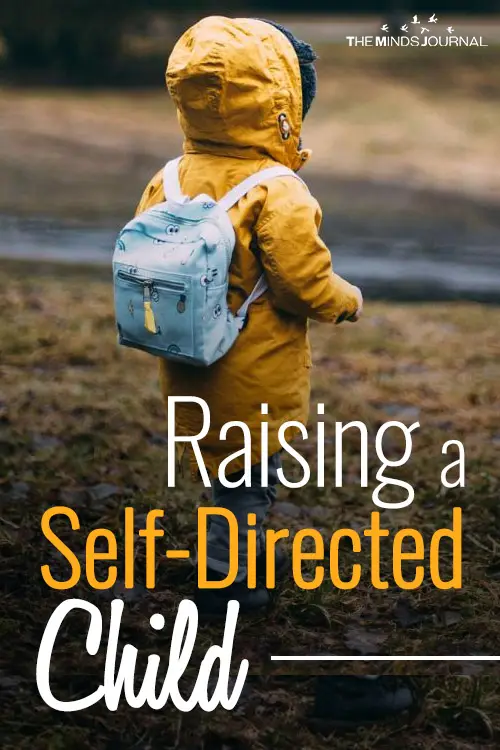
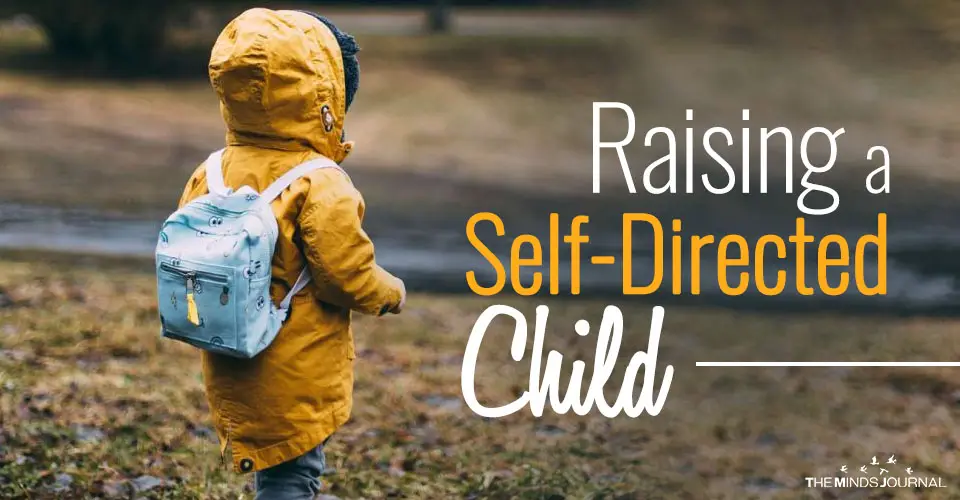
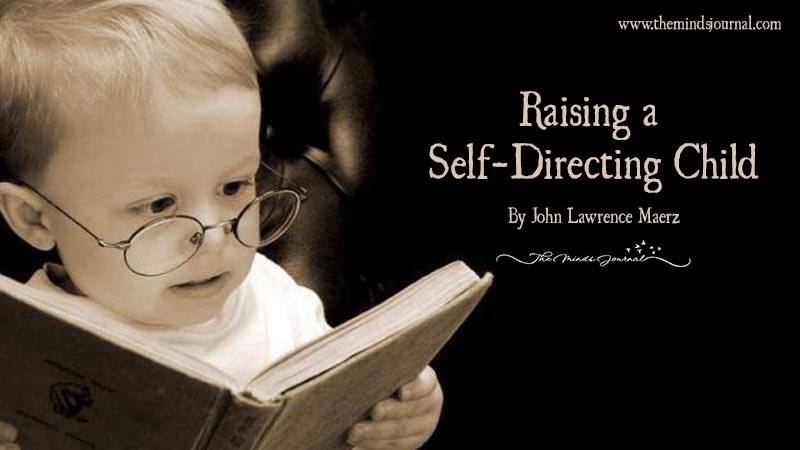




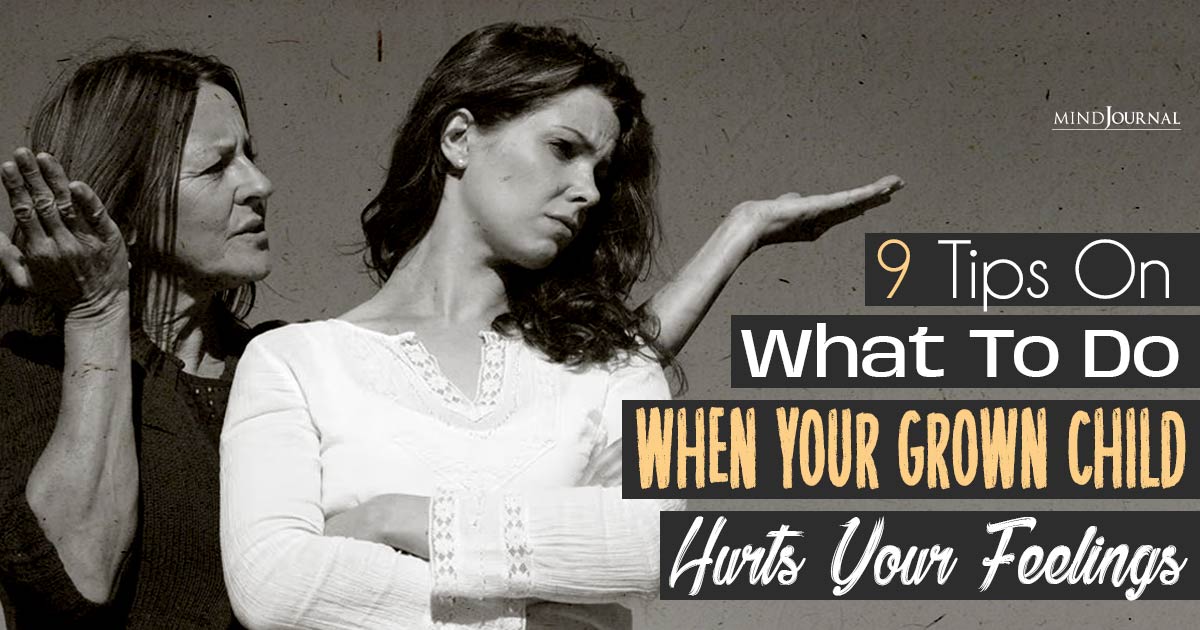
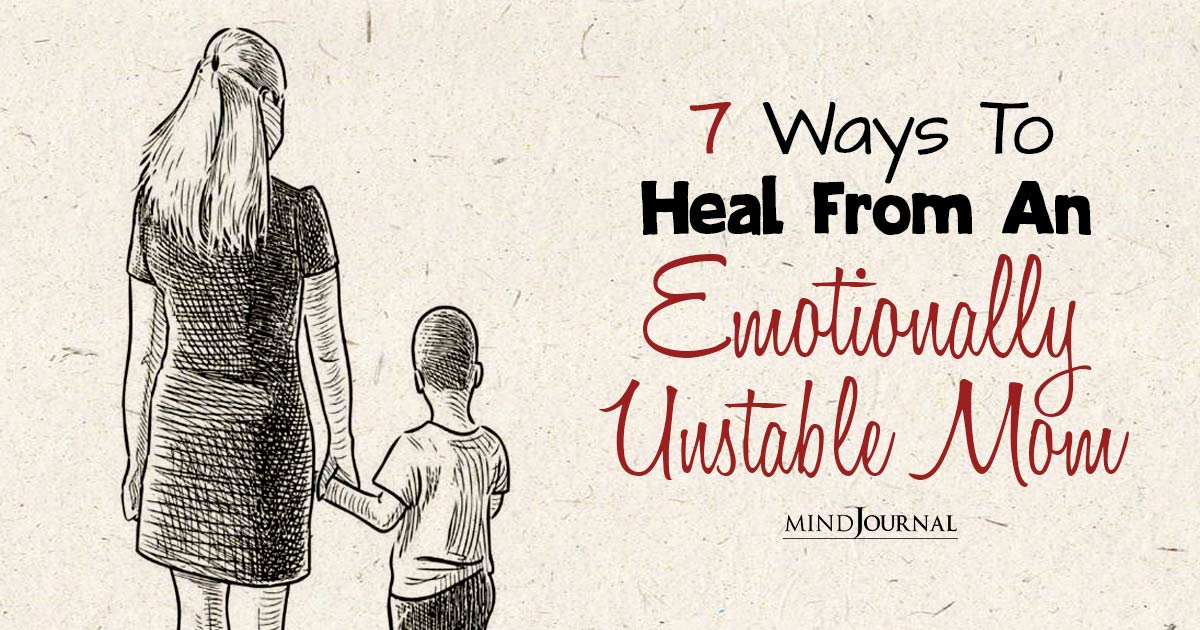
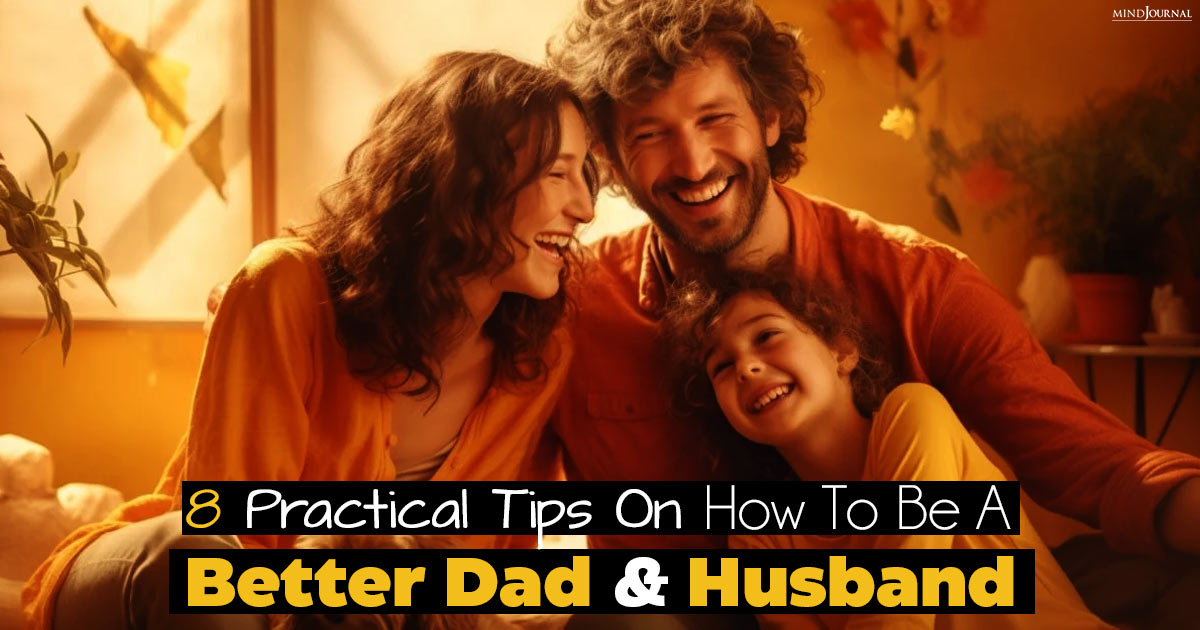
Leave a Reply
You must be logged in to post a comment.